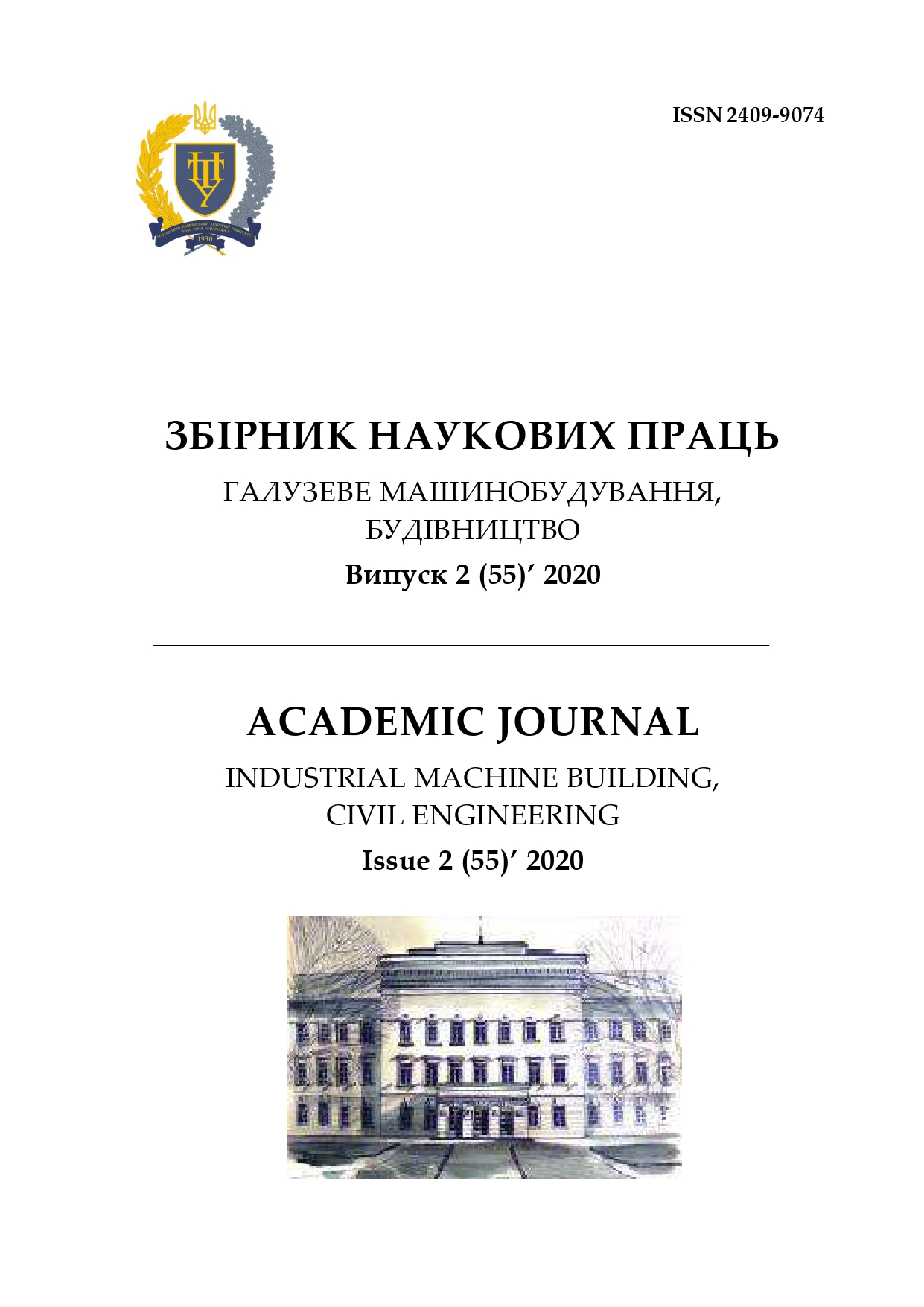The efficiency increase of equipment work for the cleaning block of washing fluid
DOI:
https://doi.org/10.26906/znp.2020.55.2354Keywords:
the vibrating sieve, the drilling solution cleaning, the vibration exciter, the drilling solution, the rheological model, the working body, harmonic fluctuations, the resonant modeAbstract
The efficiency increase of equipment work for the cleaning block of washing fluid by the vibrating sieve modernization has been observed. The approach to the most acceptable values of constructive parameters of vibrating sieve using analytical methods and the usage of the rheological mixture model that allows determining the dynamic and technological characteristics of the vibrating machine and environmental impact on the form board and bottom has been implemented. The influence of the working body (grid) of the vibrating sieve on the rough cleaning of drilling mud from sludge has been investigated. A method for reducing complex hybrid systems to systems with a finite number of freedom degrees has been proposed, and the reduced parameters had the ability to adequately describe the wave processes of a continuous medium.
References
Stebelska G.Ya. (2015). Geological conditions of exploration and development of deposits of highly viscous oil and natural bitumen. Visnyk Kharkivskogo natsionalnogo universytetu imeni V.N. Karazina, 1157, 53-57
Shmigalsky V.N. & Goryachikh M.V. (2011). Inventions not in the applicant's specialty and profession. Materials of the II International Scientific and Industrial Complex of scientists, leaders, specialists and teachers "Ukraine and the modern world" (May 13, 2011), 74-77
Nesterenko M., Nazarenko I. & Molchanov P. (2018). Cassette installation with active working body in the separating partition. International Journal of Engineering and Technology (UAE), 7(3), 265-268
doi:10.14419/ijet.v7i3.2.14417 DOI: https://doi.org/10.14419/ijet.v7i3.2.14417
Nesterenko M., Maslov A. & Salenko J. (2018). Investigation of vibration machine interaction with compacted concrete mixture. International Journal of Engineering and Technology (UAE), 7(3), 260-264
doi:10.14419/ijet.v7i3.2.14416 DOI: https://doi.org/10.14419/ijet.v7i3.2.14416
Lyakh М.М., Savyk V.М.& Molchanov P.О. (2017). Experimental and industrial research on foamgenerating devices. Розробка родовищ корисних копалин, 5, 17-23
Nesterenko M.P., Molchanov P.O., Savyk V.M. & Nesterenko M.M. (2019). Vibration platform for forming large-sized reinforced concrete products. Scientific Bulletin of the National Mining University, 5, 74-78
http://doi.org/10.29202/nvngu/2019-5/8 DOI: https://doi.org/10.29202/nvngu/2019-5/8
Biletskyi V.S., Shendrik T. & Sergeev P. (2012). Derivatography as the method of water structure studying on solid mineral surface. Geomechanical Processes During Underground Mining. London, UK: CRC Press Taylor & Francis Group
Korobko B.O. (2016). Investigation of energy consumption in the course of plastering machine’s work. DOI: https://doi.org/10.15587/1729-4061.2016.73336
Eastern-European Journal of Enterprise Technologies (Energy-saving technologies and equipment), 4/8(82), 4-11
http://journals.uran.ua/eejet/article/view/106873
Nesterenko M.P., Nesterenko T.M. & Skliarenko T.O. (2018). Theoretical studies of stresses in a layer of a light-concrete mixture, which is compacted on the shock-vibration machine. International Journal of Engineering & Technology (UAE), 7/3.2, 419-424
http://dx.doi.org/10.14419/ijet.v7i3.2.14564 DOI: https://doi.org/10.14419/ijet.v7i3.2.14564
Maslov O.G., Serbin V.O. & Lukyanenko V.P. (2015). Determination of rational parameters of the vibrating machine for the formation of concrete blocks. Bulletin of Mykhailo Ostrohradskyi KrNU, 1(90)/1, 98-103
Orlovsky V.M., Savik V.M., Molchanov P.O. & Pokhilko A.S. (2018). Lightweight grouting material.
Scientific Bulletin of the National Mining University, 4(166), 36-42
Rivin E.I. (2003). Passive vibration isolation. DOI: https://doi.org/10.1115/1.80187X
New York: ASME Press
Kelly G. (2011). Mechanical Vibrations. Toronto: Cengage Learning
Shigeyuki D., Goryozono Y. & Hashimoto S. (2012). Study on consolidation of concrete with vibration. Physics Procedia, 25, 325-332.
https://doi.org/10.1016/j.phpro.2012.03.091 DOI: https://doi.org/10.1016/j.phpro.2012.03.091
Banfill P.F.G., Teixeira M.A.O.M. & Craik R.J.M. (2011). Rheology and vibration of fresh concrete: Predicting the radius of action of poker vibrators from wave propagation. Cement and Concrete Research, 41(9), 932-941 DOI: https://doi.org/10.1016/j.cemconres.2011.04.011
https://doi.org/10.1016/j.cemconres.2011.04.011 DOI: https://doi.org/10.1088/1475-7516/2011/04/011
Juradian S., Baloevic G. & Harapin A. (2014). Impact of vibrations on the final characteristics of normal and self-compacting concrete. Mat. Res. [online], 17(1), 178-185. DOI: https://doi.org/10.1590/S1516-14392013005000201




